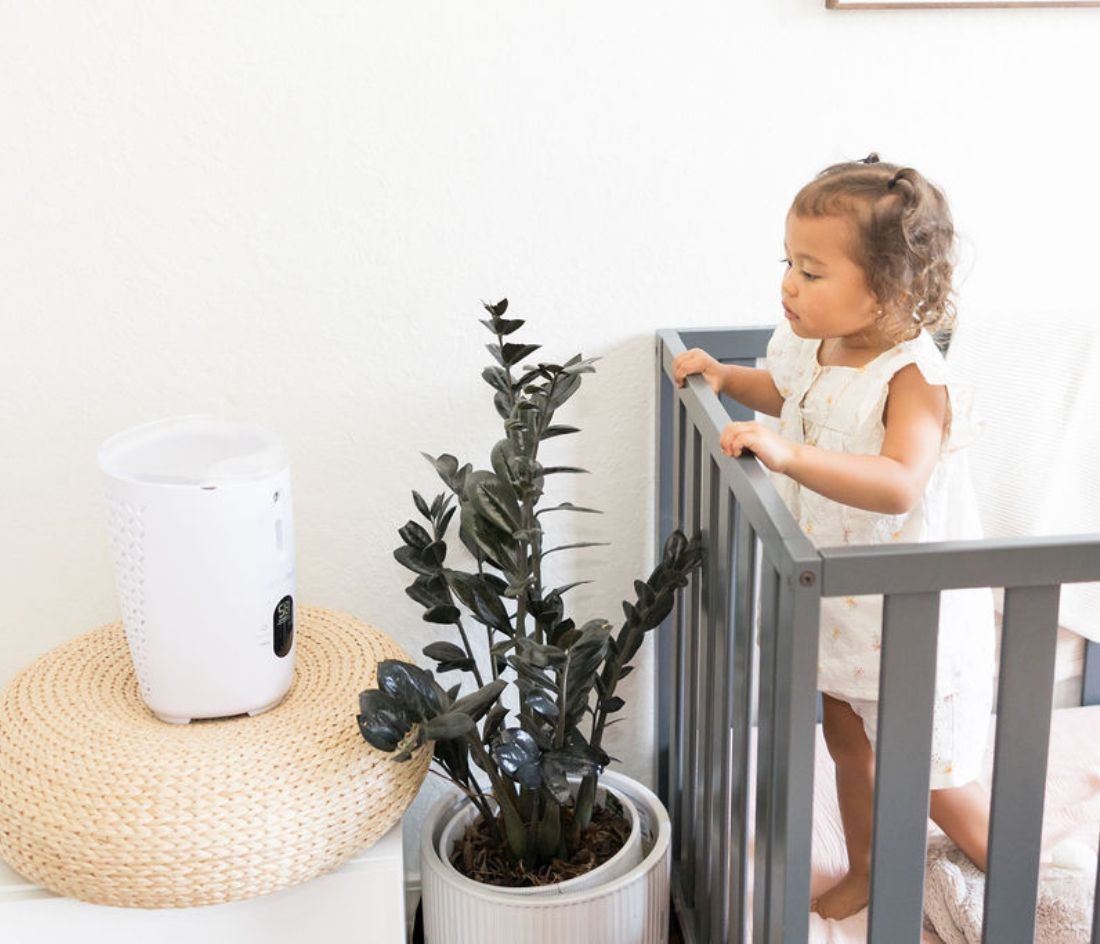Guest Post By Genevieve Kane, MSN, RN
There are several differing opinions about the right way to raise kids. However, if there’s one thing parents and caregivers agree on, it’s the importance of raising mentally strong kids.
Every child will undergo stress throughout their life. For example, a baby may experience stress the first time their parents leave them with someone else. A young child may feel upset over bedtime or a bad cold they want to go away. And older children may experience emotional challenges during conflicts with friends.
Parents and caregivers can’t prevent their children from feeling negative and stressful situations. However, there are several steps parents can take to raise mentally strong kids.

Defining Mental Strength
Mental strength and mental health are often mixed up. Amy Morin, LCSW, editor-in-chief of VeryWell Mind and the author of best-selling books on mental strength, describes the difference between mental health and mental strength.
Morin explains that mental health is about whether or not you have a mental health condition and your general mental state. In comparison, mental strength involves several aspects. These include:
- The ability to work through challenging emotions and experiences
- Emotional intelligence
- Knowing when to take a step back from emotions that may be too strong
While there is a difference between the two terms, mental health can affect mental strength and vice versa.
As parents and caregivers, we all want mentally strong children who have this skill set. And it can be a challenging skill set to develop. Here are three key steps to building mentally strong kids.
Acknowledge Their Feelings
One important step parents can take to raise mentally strong kids is acknowledging their children’s feelings. For an infant, this could be the stress from starting daycare.
For a toddler, this could mean getting down on their level and hugging them after they drop a piece of toast. As adults, we can understand it is just a piece of toast. And we realize we can usually make a new one if needed.
However, that toast may be a big deal for a toddler. And consider this—acknowledging your child’s feelings over the seemingly mundane parts of toddlerhood, such as a dropped piece of food, sets the stage for them to feel safe to come to you for bigger things as they get older.
One day that toddler will likely navigate complex social situations with peers. Being consistent in acknowledging their feelings can help build mentally strong kids. It also demonstrates you are a trusted adult they can turn to in situations big and small.
Teach Them “No” Is a Complete Sentence
Kids can feel uncomfortable saying no to a grownup. However, it is essential to teach them that if something feels off about a situation, saying “no” is ok
Of course, there are situations they may not want to comply with, and “no” isn’t an option. For example, they may not want a diaper change before you head out the door. Or, they may not want to go down for rest or quiet time.
In those situations, it is appropriate to acknowledge their feelings and desire for control. Providing them with options can also help. For example, if it is nap time, let them know it will be time to rest soon. Then give them a choice between three books to read for story time before nap.
Give your child examples of when to say “no”. Open communication about saying “no” and boundaries sets the expectation early on that you are a safe person to tell if they ever do say “no” to a grown-up (or other kid) and it’s not respected.
Even if it is a situation where “no” was not an option, you can acknowledge how they felt and why they chose to say “no.” And by consistently acknowledging their feelings, they’ll continue to trust you with more significant challenges as they get older and they’re having difficulties with saying “no” and boundaries
Giving kids the power to say “no” and working with them instead of against them helps empower your kids, too. And empowering kids is another way to help raise mentally strong kids and build resilience.

Empower Your Child
Empowering your child is another part of raising mentally strong kids. Merriam-Webster defines “empowered” as “having the knowledge, confidence, means, or ability to do things or make decisions for oneself.” An emotionally empowered child will have the emotional intelligence to understand their feelings better. This leads to a mentally strong kid.
Additionally, an empowered child may have increased confidence and the ability to seek help from a trusted adult if they need help. They could need help with something simple, like a congested toddler asking a parent to use the NozeBot to clear their nose. Or it could be something bigger, like a conflict with peers.
The adult can then provide guidance or ensure they are set up with appropriate resources.
Looking for more tips on raising mentally strong kids? You’ll find these helpful:
- Common Mistakes Parents Make When Trying To Calm A Crying Baby
- Hilarious Parenting Tweets That Will Make You LOL
- Productivity Hacks For Work At Home Moms With A New Baby
- 10 Daycare Tips For Working Moms That Only A Parent Would Tell You
- 10 Ways To Get Little Ones Involved In Spring Cleaning
Key Takeaways for Mentally Strong Kids
Raising mentally strong kids is challenging, especially with all the day-to-day stressors kids face. The American College of Pediatrics (AAP), in partnership with the American Academy of Child and Adolescent Psychiatry and Children’s Hospital Association, declared a national emergency in child and adolescent mental health back in 2021.
And while there are several ways parents and caregivers can strive to raise mentally strong kids, it is also important to develop partnerships with other trusted adults in your child’s life.
For example, at pediatric well-child visits, voice any social and emotional concerns you have about your child instead of focusing just on physical health. Depending on your child’s age, they may be able to express their concerns in their own words.
Making mental health a part of checkups can help build mentally strong kids and normalize any challenges with mental health. Remember, routine checkups aren’t just about physical health—checking in on mental health and building mental strength is essential, too!
You can also consider reading helpful books about mental strength. Amy Morin, LCSW, mentioned previously, has several books on mental strength for parents, mentally strong kids, and mentally strong couples, among other titles. Mentally strong parents are important, too, in order to raise mentally strong kids!
And, if you have a genuine concern for your child’s well-being and safety, contact professionals for help. If the situation is not an immediate emergency, your child’s healthcare provider is a good resource for recommended therapists and counselors.

If you are concerned your child is struggling and you or them (depending on their age) need to talk to someone immediately, most states have a crisis line and resources available. Additionally, dialing 988 will put you in touch with the national Suicide and Crisis Lifeline if you are unsure of your state’s number.
And if you are concerned for your child’s safety or well-being and experiencing an emergency, dial 911 or head to the emergency department.
As their parent or caregiver, you are your child’s best advocate. There are several ways to raise mentally strong kids. However, one of the best ways to develop mental strength in kids is for the child to have a consistent, caring adult presence in their life who sets an example for mental strength and is a role model they can trust.
Genevieve Kane, MSN, RN, is a mother of four and a registered nurse with a background in pediatrics. When she's not working, you can find her cooking up tasty family dinners or keeping up with her kids on a hiking trail in her home state of Colorado.
The Nozebot is a battery-powered suction device designed to clear nasal congestion in babies and children.



